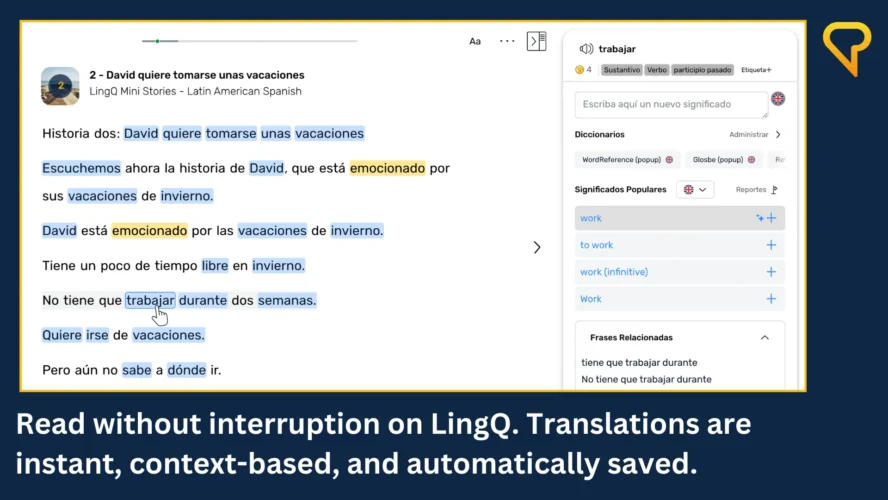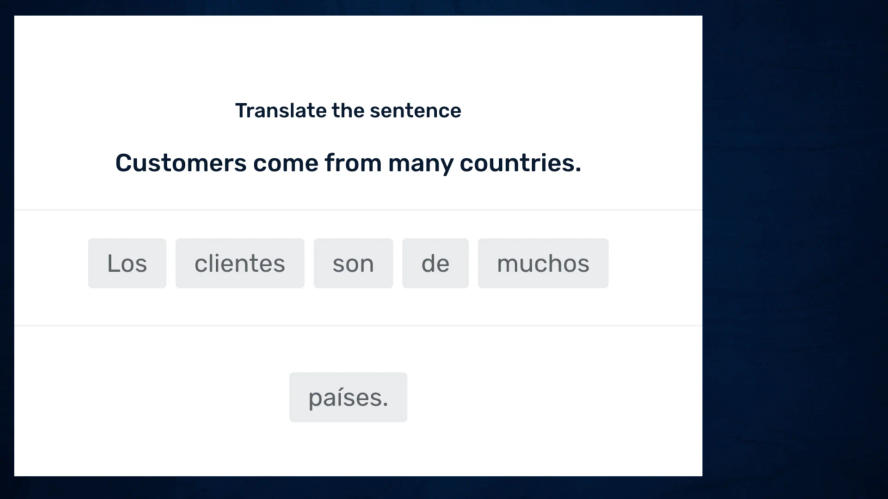How important is memory when it comes to accumulating vocabulary? To answer this question briefly, it’s not that important. Developing an ample vocabulary is an essential part of language learning, but this is not, however, the most effective way to expand your vocabulary. I’ve never been able to learn new words by deliberately trying to memorize them. In this post, I’ll explain how I find more success in growing my vocabulary consistent exposure versus flashcards or sheer memorization.
How I Expand My Vocabulary
I recently visited my brother, and I helped him get set up on LingQ to start learning Spanish. My brother is not an experienced language learner, and it’s interesting to hear about his experience. Something that initially frustrated my brother was that he couldn’t remember words and sentences. Like many language learners, he was under the impression that language learning required memorization before proceeding to newer or more difficult texts. I told him that he shouldn’t worry about memorizing everything. As long as he works through and understands the content, the words will eventually stick.
Exposure versus Memorization
I learn languages primarily through reading and listening, using platforms like LingQ to look up new words and review more effectively. When studying on my tablet, I don’t expect to know every word on my screen. I’ll often quickly look over the definition of a word while reading and move on. This doesn’t bother me. To expand my vocabulary, I need to expose myself to a large amount of words in different contexts. As I come across new words again and again, eventually their use and meaning become more familiar.

It’s that simple. I acquire more words and develop a stronger grasp of the language through consistently reading and listening to the language. I find this to be a better use of my time than drilling 10 words a day, as I’m able to expose myself to larger volumes of my target language in a more interesting way.
My Opinion on Flashcards
I don’t use flashcards for memorization. I use flashcards as an additional form of exposure. Instead of testing myself with flashcards, I prefer to have all the information on the front. I’m giving myself another opportunity to see the word and some examples of its use. I understand that, through continuous exposure, I will eventually learn the word.



On LingQ, you can review your lesson in its entirety or study a text more closely at the sentence-level.
Comprehension versus Recall
If I am able to follow what I’m reading or listening to, I’m sufficiently engaging with the language to internalize new words and sentence structures. Words can have different forms, tenses and persons. Approaching this richness through memorization can be daunting. Instead, I prioritize building comprehension through more and more exposure.
If I come across a new form of a word that I already know, I may continue reading or quickly save it on LingQ just for reinforcement. Nevertheless, I find that my “known words” count on LingQ grows much faster when I prioritize building a strong listening and reading flow with my target language instead of limiting myself to vocabulary drills or sentences without context.
Final Thoughts: Vocabulary is Acquired, not Memorized
Often, people will consider learning a language impossible, claiming that their memory is too poor. The truth is that memory isn’t the most important ingredient to language learning success. The key to success in language learning is committing yourself to the process, consistently reading and listening to content that you enjoy. You need to immerse yourself in the language and trust that your brain will gradually learn more and more over time.
So, my advice to fellow language learners is to not become discouraged if you repeatedly forget a word or have to look up definitions while you’re working through content. You will acquire the words even as you forget them. Regardless, deliberate memorization is not the key to expanding your vocabulary. Your grasp of the language does not materialize overnight. If you are able to apply yourself, focus on exposure, and trust your brain, your vocabulary will expand.








